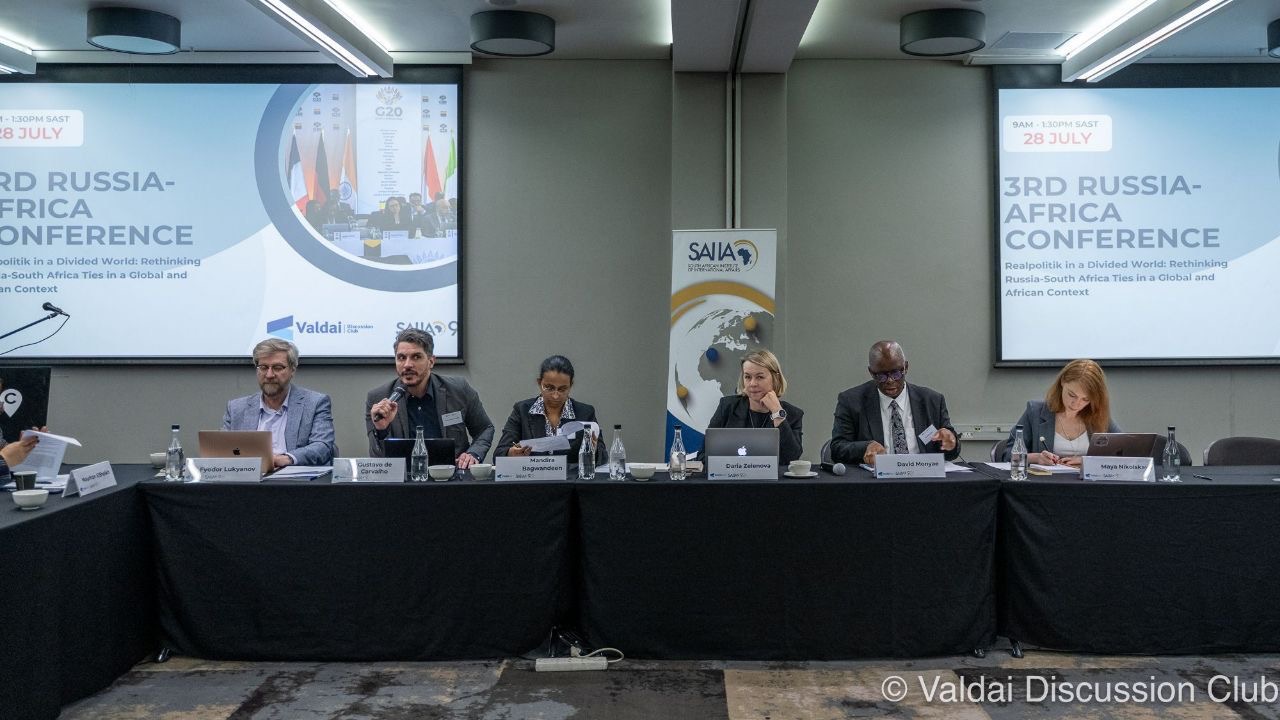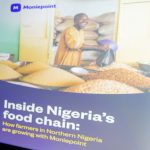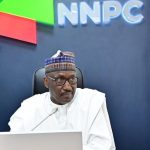Feature/OPED
Saving the Earth is Our Collective Responsibility

By Elsie Udoh
Twenty-three hours, 56 minutes and 4.09053 seconds, this is how long it takes for the earth to rotate once. Only a very few men and women have had the opportunity to look at Earth from space firsthand, and they confess that it is truly a beauty.
Interestingly, the earth recycles itself. Recycling occurs because the planet is constantly in motion. The recycling process occurs in stages. For example, the earth’s rotation causes it to be covered in large moving pieces known as tectonic plates. These plates can move toward or away from each other, and the movement of these plates drives the earth’s recycling system. Humans can never see the entire recycling process because this takes many millions of years.
The earth’s recycling process reveals the rigorous efforts the earth undergoes to ensure the sustainability of life. However, this effort seems to go unnoticed by its inhabitants, who expose the earth to harmful substances that weaken its survival process.
In 2021, a report by the Intergovernmental Panel on Climate Change (IPCC) revealed that emissions of greenhouse gases from human activities are responsible for approximately 1.1°C of global warming since 1850-1900. The report states that averaged over the next 20 years, global temperature is expected to reach or exceed 1.5°C of warming. This is greatly due to human activities.
Activities such as the cutting down of trees, to the building of houses, estates, and industries keep carbon dioxide trapped in the atmosphere, which pollutes the air making it unfit for humans. Also, many inventions, including cars, trains, planes, and electric power plants, burn fossil fuels, which release large quantities of greenhouse gases such as carbon dioxide into the air. These gases increase the greenhouse effect and contribute to global warming.
Global warming, in turn, affects the earth by melting glaciers and ice caps faster than usual. Glaciers and ice caps hold about 75 per cent of the world’s fresh water. If all the ice covering Antarctica, Greenland, and mountain glaciers around the world were to melt, the sea level would rise about 70 meters, and this would be catastrophic.
In 2022 in Nigeria, the country was hit by climate change that resulted in floods that affected some parts of the country, including Lagos, Rivers, Kogi, Benue and other states in the northeast region. The number of people affected by widespread flooding across Nigeria has risen to over 3.2 million, with over 600 fatalities. Over 1.4 million people have been displaced, and thirty-four of the country’s 36 states have been affected.
The earth seems to be in a state of climatic despair, and she is desperately in need of an antidote. Pollution surrounds the air, land, water and environment. The survival of the earth is being threatened by global pollution, and a more definite approach needs to be implemented to enable the earth to heal.
Pollution knows no borders
Lagos State, known for its megacity status, stands as the most populated city in Nigeria, with an estimated 20 million people living. The major sources of pollution in Lagos are road transport, industrial emissions, blocked drainages and generators aggravated by open burning and illegal dumping of waste.
With over 5 million cars and 200,000 commercial vehicles on the roads of Lagos releasing harmful sulphuric contents into the air, generators that service homes and commercial buildings, solid waste from snack wrappers, nylons and plastics, mostly non-biodegradable, on the streets and blocking drainages, Lagos State’s PM2.5 concentration stands at 5.9 times the WHO annual air quality guideline value.
Countries curbing pollution
In Africa, the city of Ghana is taking an active role in curbing pollution. Accra was the first African city to join the BreatheLife campaign to tackle air pollution. This campaign was carried out in a bid to educate people about the health dangers of indoor cook stoves and to discourage locals from burning their waste. Accra, the capital of Ghana, has a PM2.5 concentration at currently 2.2 times the WHO annual air quality guideline value, which is good.
The Asian city, Bangkok in Thailand, launched the Green Bangkok 2030 project in 2019 to increase the ratio of green space in the city to 10sqm per person, as well as to have trees covering 30 per cent of the city’s total area and ensure footpaths meet international standards. All of these were done in a bid to reduce pollution.
Companies in Nigeria taking a stand against pollution
Some companies in Nigeria have also taken an active role in dealing with the problem of pollution. For example, the world’s largest non-alcoholic beverage company, Coca Cola in a bid to curb the harmful effects of plastics on the environment, developed sustainability projects aimed at reducing plastic waste. The company, in February 2022, announced the use of refillable containers and redesigned its bottles to make them recyclable. Coca-Cola has also been involved in beach cleanup campaigns in partnership with key government and non-governmental stakeholders alongside community volunteers. The goal of this initiative is to engender better waste disposal habits among residents of coastal communities.
Another notable move to solving the problem of pollution was made by Sterling Bank Plc. The commercial bank carried out an environmental cleaning exercise in 23 states simultaneously across Nigeria. This was part of its commitment to creating a cleaner and safer environment for the citizenry and aquatic life under its Corporate Social Responsibility (CSR) initiative known as Sterling Bank Environmental Makeover (STEM).
Unilever PLC also developed sustainability goals to reduce the total waste footprint from the use of their products by 32% and achieve zero waste to landfill across all factories. Also included in its sustainability goals is the plan to reduce greenhouse gas emissions from its manufacturing by 65 per cent and achieve 100% renewable grid electricity across its sites.
How you can help the earth from Nigeria
There is a great need now more than ever to contribute to the preservation of the earth. This calls for a collective effort on the part of the inhabitants of Nigeria.
Governments should create more awareness of the need to adopt the use of alternative sources of energy to reduce the level of carbon dioxide released into the atmosphere and also propagate tree-planting initiatives.
At home, energy should be conserved by turning off lights in areas where they are not in use. Keep in mind that it takes over 450 years for plastic to decompose, so avoid dumping plastics on the ground and especially in drainages. Rather, displace them properly in waste bins.
Also, avoid excessive burning of leaves, trash and other materials. Remember, we have an individual responsibility to ensure we leave the earth in a better condition than we met it, and this depends on the little steps we take now.
Feature/OPED
BBNaija, Piracy, and the Hidden Cost of Entertainment

By Adedotun Lawal
We live in an age where everything is just a click away. Music, movies, books, and television shows. It is easy, fast and often free. However, in the shadow of this convenience lies a growing threat that many overlook: piracy. It is not just an issue of right or wrong; it is a quiet, consistent erosion of Nigeria’s entire creative economy, an economy that has given the world Nollywood, Afrobeats, and cultural stories that resonate across continents.
The reality is sobering. A UNESCO report estimates that between 50% and 70% of revenue in Nigeria’s film market is lost to piracy. For every legitimate copy sold, nine others are pirated. This means that for every N1,000 a filmmaker should earn, only N100-500 reaches their pocket. The rest vanishes into the digital ether, stolen by a system that has normalised theft as convenience.
An illustration of this point is a show like Big Brother Naija, a cultural phenomenon currently driving conversations across Nigeria. Beyond the glitz, drama, and fanfare lies a complex production engine powered by producers, editors, camera operators, sound technicians, costume designers, writers, marketers, and countless others. Months of planning, coordination, and creativity go into delivering the daily entertainment millions enjoy. But when this content is illegally streamed on Telegram channels, Instagram stories or pirate sites, it denies every single person on that production chain the value of their labour.
The problem spans Nigeria’s entire creative ecosystem. Nollywood produces approximately 2,500 films annually and employs over one million Nigerians, making it a significant contributor to the country’s economy, which faces high unemployment. Yet the world’s second-largest film industry loses approximately $2 billion to piracy every year. Think about what $2 billion could do, how many more films could be made, how many more jobs could be created, and how many more Nigerian stories could reach global audiences.
In the music industry, the pain is equally acute. No artist wants their process to be disrupted by leaks and affected by piracy, yet this has become the reality for even Nigeria’s biggest stars. When Wizkid, Davido, or Burna Boy release new music, unauthorised versions appear on countless platforms within hours, robbing them of streaming revenues and undermining the hard work of record labels, producers and promoters who invested in their success.
The publishing industry faces similar challenges. Nigerian authors watch as PDF copies of their books circulate freely on social media, effectively eliminating the incentive for people to purchase original copies. When a book that took years to write and months to publish can be shared with thousands at the click of a button, what incentive remains for the next generation of writers?
At first glance, piracy might seem a victimless crime. After all, if someone shares a movie link or uploads a show to Telegram, who gets hurt? The truth is, everyone does. Beyond the loss of revenue, this practice also discourages local and foreign investments, as nobody will want to support an endeavour that may not yield the expected dividends. When content does not generate its expected revenue, budgets are slashed, projects are shelved and jobs are lost.
What makes this particularly heartbreaking is how normalised it has become. From university campuses to WhatsApp groups, pirated content is shared casually, as though it is simply another way to enjoy entertainment. The ripple effects are anything but casual.
Consider a typical Nollywood production. Films are shot under conditions that professionals elsewhere would consider impossible, with budgets as little as N15,000,000. When piracy strikes, that already thin margin disappears entirely. The producer who took a loan to fund the film may never recover their investment. The actors who worked for reduced fees, hoping for backend profits, see nothing. The distributors who believed in the project are left counting losses instead of profits.
The emotional toll on creators cannot be overstated. Take Toyin Abraham’s experience with her 2023 film “Malaika.” After investing N500 million in the production, the actress revealed that piracy of her movie led to panic attacks and hospitalisation. “I wanted to run mad seeing my movie pirated,” she confessed. “I cried and made several calls before she and her team started breaking the links of the ones uploaded.” Her ordeal led to the arrest and prosecution of six suspects for conspiracy, infringement on intellectual property, and cyber-related crimes.
Abraham’s pain reflects a broader truth about piracy’s human cost. As acclaimed filmmaker Steven Soderbergh once observed, “The problem with piracy is that it is not just about money, but also about the devaluation of creative work. When you steal someone’s movie, you are saying their years of work have no value.”
For upcoming creatives, piracy creates a hostile environment where talent may never be rewarded. It discourages innovation and growth, sending a message that creativity is not something to be protected; it is something to be exploited. Why should a young filmmaker spend months crafting a story when they know it will be illegally distributed before they can recoup their investment?
The fight against piracy has seen some victories. Law enforcement agencies have raided piracy rings, and digital platforms have been shut down. Content creators themselves have become more vocal about the impact of piracy on their livelihoods. But this is not a fight they can win alone.
The responsibility also falls on us, the everyday viewer, reader, and listener. Every time we choose to stream a movie from a suspicious free website, download a leaked album, or share a PDF of a Nigerian book, we are voting against the future of our own creative economy. We are saying that the stories, music, and moments we claim to love are not worth paying for.
The irony is painful. We celebrate when Nigerian artists win international awards, when Nollywood films get global recognition, and when our books find international publishers. Yet many of us undermine these same industries through our consumption choices. We want world-class entertainment produced on local soil, but we are unwilling to pay for the local soil to remain fertile.
Every legitimate purchase, every cinema ticket bought, every official stream, and every book purchased from a credible source contributes to the survival of the arts. Nigeria’s creative industries already contribute as much as 1.2 trillion naira each year to the Nigerian economy, but they have the potential to contribute much more if we stop bleeding revenue to piracy.
The choice is ours. We can continue to treat creativity as free content to be consumed without thought for the creators, watching as our industries struggle to compete globally while we starve them of the revenue they need to thrive. Or we can recognise that every naira we spend on legitimate content is an investment in the future of Nigerian creativity, a vote for more Big Brother Naijas, more world-conquering Afrobeats, and more Nollywood films that make us proud to be Nigerian.
In the end, piracy does not just steal content; it steals our cultural future. It silences voices before they have had a chance to speak. And if we want to keep enjoying the stories, music, and moments that make us uniquely Nigerian, we must protect the people who create them.
Lawal, a media professional, writes from Lagos
Feature/OPED
Global South and Africa Dominate Scientific Discussions at the Valdai Club’s 3rd Russian-African Conference

By Kestér Kenn Klomegâh
On July 28, 2025, the III Russian-African Conference on the theme: “Realpolitik in a Divided World: Rethinking Ties between Russia and South Africa in the Global and African Context” was held in Pretoria (South Africa). It was organized by the Valdai Discussion Club in partnership with the South African Institute of International Affairs (SAIIA). The conference was attended by more than 60 experts from Egypt, Zimbabwe, Côte d’Ivoire, Russia, Tanzania and South Africa, including employees of the Institute of African Studies of the Russian Academy of Sciences.
Traditionally, the Valdai Club prepares a special Valdai report ahead of the conference. This time, its authors were D.A. Zelenova, PhD in Political Science, Head of the BRICS African Strategy Research Center at the Institute for African Studies of the Russian Academy of Sciences, and Sanusha Naidoo, Research Fellow at the Nelson Mandela School of Government at the University of Cape Town and Senior Research Fellow at the Institute for Global Dialogue, associated with the University of South Africa (UNISA).
The topic of the 2025 report is “Russia and South Africa: A Solid Foundation for Strategic Partnership”, the authors show how the historical legacy of the struggle for the liberation of Southern Africa forms favorable preconditions for the development of bilateral ties in the 21st century. In addition, on the eve of the conference, its participants present a whole “scattering” of expert comments, one of which – “BRICS Summit in Rio: African Vector of Cooperation of the Global South” – was also prepared by the staff of the BRICS African Strategy Study Center.
The first two sessions of the conference – “The Group of Twenty and BRICS: Assessing Strategic Roles in the Changing Global Order” and “Humanitarian Cooperation and the Role of Historical Memory in Russia’s Relations with South Africa and Other African Countries” – were held in an open format, with the participation of representatives of African and Russian media. Chief Researcher of the Institute of Africa of the Russian Academy of Sciences, Professor D.A. Degterev acted as a discussant in the second session, describing the current state of cooperation between Russia and Africa in the field of higher education. In his speech, he presented the thematic issue of the Scientific Notes of the Institute of Africa of the Russian Academy of Sciences (No. 2, 2025), dedicated to the analysis of successful examples of Russian African educational cooperation.
The two subsequent sessions of the conference – “Bilateral Relations of Russia and South Africa: Status and Prospects” and “Trump and the World Order” were held without the participation of the media. Head of the Center for the Study of the BRICS African Strategy of the Institute of African Studies of the Russian Academy of Sciences Daria A. Zelenova presented the current prospects and problematic aspects of bilateral cooperation between Russia and South Africa during the third session, and showed successful examples of interaction. The fourth session included a discussion of the increasing hegemonic tendencies in US foreign policy.
A number of fruitful meetings with leading researchers from South Africa, as well as Egypt, Tanzania, and Zimbabwe took place on the sidelines of the conference, which will give impetus to the cooperation of the Institute of African Studies of the Russian Academy of Sciences with scientific organizations on the continent.
Feature/OPED
From Aid to Trade: Turning China’s Investment into Export Power

By Rachel Irvine
Africa may not boast the largest economies or deepest pockets, but it has what many regions lack: energy, youth, abundance, and innovation. While the rest of the world gets older and runs out of steam, Africa’s cities are expanding, consumer demand is rising, and resources remain plentiful.
What this means is that in the next 25 years, over half of global population growth will emanate from Africa, shifting the currents of investment, infrastructure, and trade.
Deep historic and cultural links are keeping the West engaged in Africa, but changing geopolitical dynamics are changing how its economic and strategic importance is viewed.
First mover advantage
Recognising its potential as a new frontier for global economic growth early on, China was Africa’s first meaningful investor in the 21st century. Over the past two decades, the Asian colossus has shifted its early focus on extractive industries to investing in renewable energy, railways, ports, manufacturing, digital networks, and healthcare. This commitment has helped lay much of the physical and digital backbone that Africa so desperately needs to grow.
Across the continent, projects backed by Chinese investment have strengthened critical systems and enabled new markets. The National ICT Backbone in Tanzania has expanded broadband access, made e-health and e-learning possible, and strengthened e-government services. In Sierra Leone, the China-Sierra Leone Friendship Hospital, built over 7,700m², continues to enhance healthcare delivery and played a vital role during the Ebola outbreak. The proposed $1.4 billion upgrade of the Tanzania-Zambia Railway furthermore promises to revitalise a key regional trade corridor for copper exports and improve transport efficiency in the region.
Such stories about local projects may not dominate headlines abroad, but they stimulate markets, build skills, and engender the conditions for African businesses and consumers to thrive.
A partnership evolving with the times
China’s approach has evolved to match Africa’s economic trajectory. The early years were defined by sovereign-backed megaprojects. Today, China invests in targeted, more manageable and commercially viable investments that encourage local participation and private-sector delivery while providing a clearer return on investment. This “small and beautiful” phase of its Belt and Road Initiative is well suited to Africa’s priorities: building industrial capacity, expanding renewable energy, and accelerating digital transformation.
The automotive sector offers a clear example. In South Africa, nearly half of the 14 Chinese car brands that are now active in the country, entered the market in the past year. BYD, one of China’s largest electric vehicle manufacturers, plans to triple its dealership network by 2026 and expand its range of electric and hybrid models. Other manufacturers, including Chery and Great Wall Motors, are gaining ground by offering technology-rich, competitively priced vehicles tailored for African consumers. These moves are about more than sales: they are building supply chains, creating jobs, and positioning South Africa as a hub for electric vehicle adoption and assembly.
Shifts in global trade are reinforcing these opportunities. As Western protectionism grows, including through US tariff regimes, China is expanding zero-tariff access for African goods and strengthening its role as a reliable trade partner. For African economies, this opens new markets and buffers against volatility in traditional export destinations.
Why engagement matters
For African governments, China’s role is pragmatic and strategic because it speeds up infrastructure delivery, broadens industrial bases, and opens new trade corridors. For businesses, aligning with this investment momentum can mean first-mover advantage in high-growth markets, improved access to logistics and industrial hubs tied into global supply chains, and opportunities to co-develop products and services for a rapidly expanding consumer base.
However, simply being present in the right markets is not enough. Success depends on positioning: showing a clear understanding of local priorities, demonstrating long-term commitment, and framing participation as part of Africa’s wider development story, which is why those that approach this relationship with clarity and purpose will gain both economic and reputational value.
This requires communicating the partnership in a way that resonates with audiences in both Africa and China – replacing outdated narratives of dependency with a focus on mutual benefit, shared priorities, and tangible results. Because perceptions can shift quickly and decisively, telling that story effectively is as critical as the investment itself.
Trade, not charity
Africa must be a partner, not a passive recipient of Chinese largesse by making African Continental Free Trade Area rules bite at the border, cutting clearance times, lifting product standards, and expanding export finance so manufacturers are able to deliver volumes. Manage debt in the open, and drop the tired “China asset grab” narrative, because outright takeovers are rare. The real work is negotiating clear, enforceable contracts that secure skills transfer and grow local capacity. The aim isn’t investment for show, but investment that builds competitive industries and export muscle. That’s how Chinese capital turns into jobs and exports.
Looking ahead
Africa’s annual infrastructure financing gap still exceeds $100 billion. No single partner can close it, but China’s willingness, scale, delivery capability, and track record make it an indispensable player in meeting that challenge.
For those who read the signs, the opportunities are boundless. The next decade will define the course of Africa’s growth and decide who reaps its rewards. Businesses, investors, and decision-makers who seize the opportunity – and position their willingness – will help to write Africa’s new story.
Rachel Irvine is the CEO of Irvine Partners
-

 Feature/OPED6 years ago
Feature/OPED6 years agoDavos was Different this year
-
Travel/Tourism9 years ago
Lagos Seals Western Lodge Hotel In Ikorodu
-

 Showbiz3 years ago
Showbiz3 years agoEstranged Lover Releases Videos of Empress Njamah Bathing
-

 Banking7 years ago
Banking7 years agoSort Codes of GTBank Branches in Nigeria
-

 Economy2 years ago
Economy2 years agoSubsidy Removal: CNG at N130 Per Litre Cheaper Than Petrol—IPMAN
-

 Banking2 years ago
Banking2 years agoFirst Bank Announces Planned Downtime
-

 Sports2 years ago
Sports2 years agoHighest Paid Nigerian Footballer – How Much Do Nigerian Footballers Earn
-

 Technology5 years ago
Technology5 years agoHow To Link Your MTN, Airtel, Glo, 9mobile Lines to NIN















